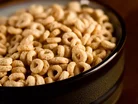How has the pandemic affected sales at General Mills?

The maker of the popular Cheerios brand, General Mills has reported a significant growth in sales for its pet food business. The US-based company has a 150-year history of providing food products, it’s most well-known brands being Cheerios and Nature Valley.
As a result of the coronavirus pandemic, the company has experienced a shortfall in sales of products like cooking sauces and baking products, but with more revenue from pet food sales, it has been able to limit its losses. The increased adoption of cats and dogs throughout Covid-19—relating to stress and loneliness among consumers—lead to a spike in pet food purchase. General Mills have also managed to leverage this demand change by launching new items from its acquisition of Tyson Foods’ pet treats business.
The company’s swift actions to meet the demand surge has seen an increase in net sales by 4.1%, resulting in a total of US$4.54bn—previously estimated to be US$4.29bn.
Pet food soars and cereal sales fall
Compared to the peak of the pandemic, the sales of snacks and baking products continued to fall this year, with the main US-based retail figure coming in 3% less than last year. Products like the Betty Crocker cake mixes were also lower in sales by about 1.2% as a result of higher transport costs in the industry, as well as labour shortages and increased raw material prices, which have plagued the food sector.
‘The current operating environment is as dynamic as we’ve experienced in at least the last decade’, says Jeff Harmening, Chief Executive Officer at General Mills. He also iterated that total input cost inflations is expected to slightly higher than the previous 7% estimate, while the quarterly net earnings attributed to the company fell by US$1.02 per share—with a total value of US$627mn.



